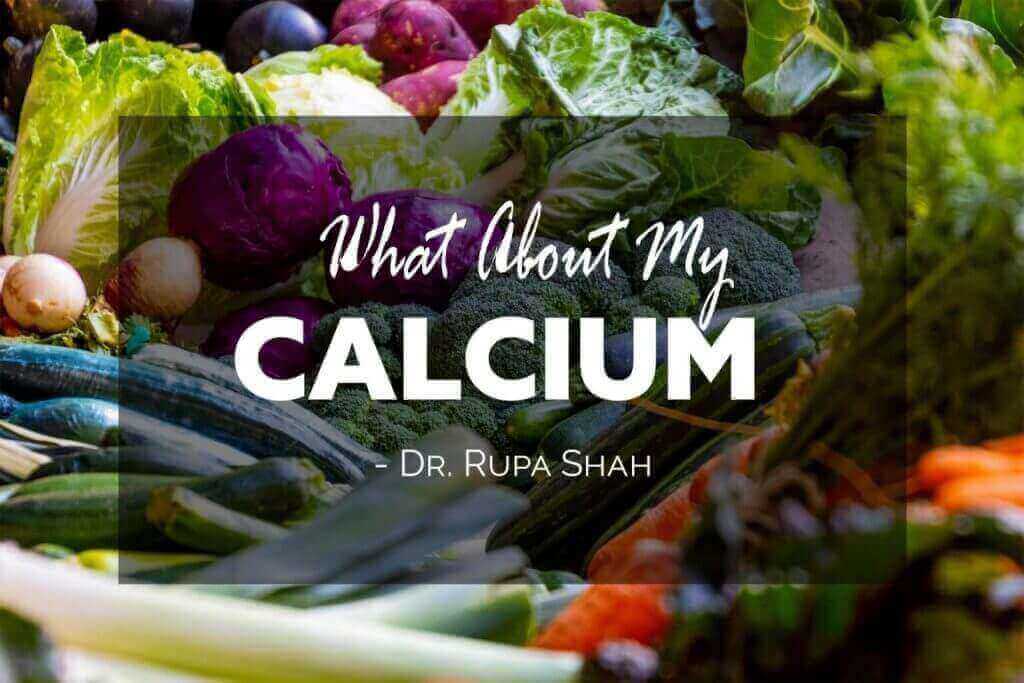Calcium is the most abundant mineral in the body. It makes up to 2% of our body weight. 99 % of our calcium is found in the bones and teeth providing structure and rigidity by forming a crystal with phosphorus. However, calcium performs another important function- it serves as a chemical messenger within the cells.
In this capacity, calcium shapes and activates key proteins related to nerve transmission, heartbeat muscle, contractions, glandular secretions and even cell division. Because of its many crucial physiological functions, our blood calcium level must be maintained within a narrow range. Our skeleton is an abundant reserve of calcium. Every day, 500mg of calcium enters the bloodstream from the bone.
But the question is how much calcium do we actually need?
How Much Calcium is Good Calcium?
According to various physicians, 1500 milligrams of calcium can be taken as supplements. What is important to understand is how much calcium one is getting through their diet. The body absorbs nutrients through natural foods more efficiently. Thus, the amount of calcium to take through supplements can vary for different people. There is not much of a difference in the calcium intake for men and women but one cannot miss checking the age difference between men and women. The primary reason for this is that men do have higher bone density and they don’t have menopause, so for them, there is a delay in the amount of time of calcium that they need compared to women.
Why is Blood Calcium so Important?
Calcium is the most important element in our bodies and we have a control system that regulates the amount of calcium in the blood and in the bones. This control system is the parathyroid glands. First, let’s see the role of calcium in our bodies. We are aware that calcium makes our bones hard, but that is not its most important function.
Our bodies use calcium as the electrical system that runs the functioning of the nerves and muscles. All mammals, dogs, cats, horses, elephants, humans etc., have an advanced nervous system that allows us to move and think using our nervous system. All the nerves in our bodies, including our brain, are designed to use calcium as the chemical electricity.
If you think about the electrical system in your house, there are electrons that flow through the wires and the walls which power our appliances. We don’t use electricity quite this way in our bodies else we would all be sparking and catching fire. Instead, calcium flows along the nerves as a way to conduct chemical electricity.
Electricity in our home is kept at a constant level at all times by the power company. The voltage cannot be different on different days. That would result in our appliances wearing out much faster. Just as the power company controls how much electricity is flowing through the wires in our house, our bodies have a control system that regulates how much calcium is in our blood and how much calcium is in our nervous system.
As mentioned before the job of the parathyroid is to control the calcium in our bodies in a normal range. These four little glands are supposed to make sure that calcium never gets too low or too high. These glands regulate the chemical energy just like the power company regulates the electrical energy in our homes. Of all the elements in our bodies like sodium, potassium, chloride, phosphorus, magnesium and zinc, only one has a control system and that’s calcium. Usually, various organs perform their respective functions but the four parathyroid glands perform the same function. In essence, this serves as a backup system – quadruple redundancy does not exist anywhere else.
p>The malfunction of the parathyroid glands is typically because one of them went crazy and developed a tumour. This out-of-control tumour is like a power plant with a meltdown. It means there’s too much calcium in our blood, and this increase in calcium can have a tremendous effect on our nervous system. How much energy do we have? How tired do we feel? How well do we sleep? How our heartbeats and many other issues. We use calcium as the chemical energy of our bodies.Sure, calcium makes our bones hard, but it’s well-regulated blood calcium that makes us feel good and enjoy life.
Symptoms of Calcium Deficiency
Following are the symptoms of calcium deficiency.
One of the first symptoms is insomnia, specifically early-morning insomnia. Let’s say you get up an hour before the alarm clock, boom, you need some calcium. So, calcium will allow you to go a little bit longer because it is needed to make tryptophan which makes melatonin. For those of you who don’t know what tryptophan is; Tryptophan is an essential amino acid that serves several important purposes, like nitrogen balance in adults and growth in infants.
So, it’s not just about calcium in the muscle itself relaxing you, it’s also about your hormones. Muscle cramps are another common symptom of calcium deficiency. It’s recommended to take calcium lactate or calcium citrate to curb this deficiency.
Other symptoms are brittle nails, tooth decay, bone loss and red-purple spots. Red-purple spots could be really small or they can be bigger. These spots appear because calcium is involved in the clotting of blood, like vitamin K.
Another calcium deficiency symptom is tetany. Tetany is a disorder of increased neuronal excitability and is usually associated with hypocalcemia. When the body becomes alkaline and is unable to transport the calcium it becomes unavailable to some parts resulting in a sensation of twitch in different parts of the body called tetany.
Pins and needles around the mouth and the lips or on your hands and feet are other symptoms of calcium deficiency, which could also be a diabetic symptom as well
What are the causes of calcium deficiency?
Hyperparathyroidism: Don’t mistake it for hypothyroidism. It’s the parathyroid, the four little glands behind the thyroid. They are really tiny and like the size of a seed of rice, a grain of rice and when it’s low, it can actually affect the calcium. When it’s high, it raises calcium and it would steal it from the bone.
- Hyperparathyroidism: Don’t mistake it for hypothyroidism. It’s the parathyroid, the four little glands behind the thyroid. They are really tiny and like the size of a seed of rice, a grain of rice and when it’s low, it can actually affect the calcium. When it’s high, it raises calcium and it would steal it from the bone.
- Kidney Damage: A damaged kidney can cause a calcium deficiency.
- Calcium Channel Blockers: These Blockers are taken when one suffers from high blood pressure and it blocks the calcium.
- Antacids: They dry up all the acid in your stomach resulting in low stomach acids. The stomach needs to be acidic to absorb minerals, especially calcium.
- Vomiting or Diarrhoea: Vomiting or diarrhoea can cause calcium deficiency because of the loss of fluids.
- Excessive Magnesium: Magnesium and Calcium work together. Thus, excessive magnesium has to be compensated with more calcium in order to work.
- Low vitamin D: When vitamin D level is low, the absorption of calcium in the intestines becomes less, which then causes the level of calcium in the blood to go down. As a consequence, the parathyroid glands become more active and produce more PTH ( Parathyroid hormone) )that causes calcium to come out of the bones, therefore weakening the bones.
- Low Stomach Acids:It is another common reason why someone becomes deficient in calcium.
In conclusion, to keep optimum levels of calcium, the best foods are greens, leafy greens like spinach, bokchoy, kale, nuts, and seeds.
If you opt to take a supplement, go for calcium lactate. Alternately, go for calcium citrate, but do not go for calcium carbonate since that doesn’t get easily absorbed by the body. After all, why would one choose to eat rocks!
About Dr Rupa Shah

Dr Rupa A. Shah (MBBS) is trained in western medicine in Mumbai and developed a keen interest in natural healing therapies about 35 years back. While researching & treating patients, she came across Flower Remedies. On getting highly encouraging results from using flower remedies, she decided along with her Doctor husband to produce and research Indian Flower Remedies, as there was ample ancient philosophy behind Indian Flower Remedies. Together they became a pioneer in developing Indian Flower Remedies, which are featured in the five International Flower essences encyclopedias. She is also trained in ‘Lifestyle Medicine’ from the Harvard Medical School, Boston, USA. She is treating all her patients with the help of flower energy remedies, a plant-based diet and lifestyle, and other complementary therapies and is now lecturing all over the world on this subject.
Dr Rupa Shah has been featured in many newspapers, magazines and even radio. She is the author of the book: Dairy Alternatives and What About My Calcium?


